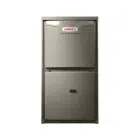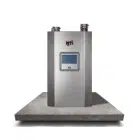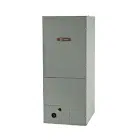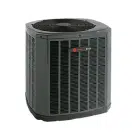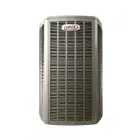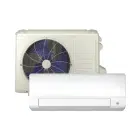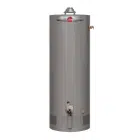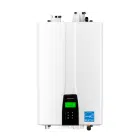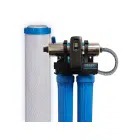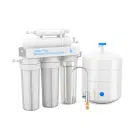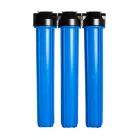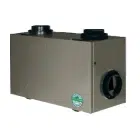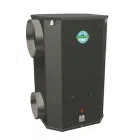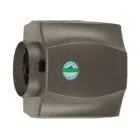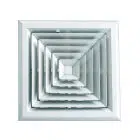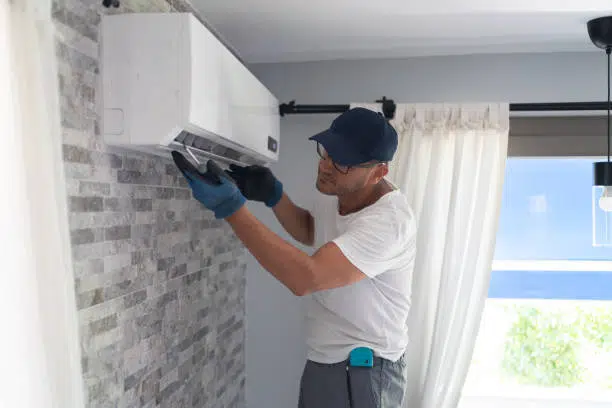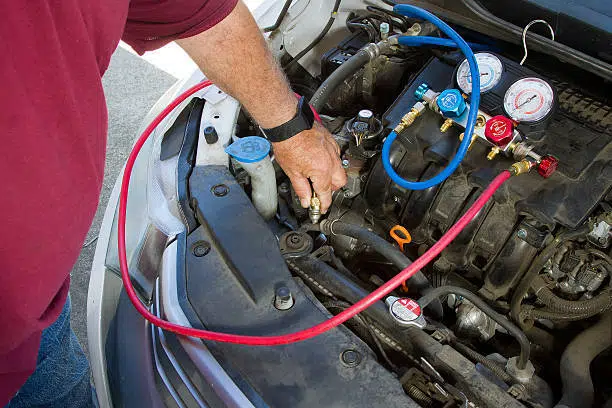
Table of Contents
In the diverse climates of Canada, from the humid summers of Ontario to the cooler regions of British Columbia, a functioning air conditioning system is essential for comfort. Central to this system is the capacitor, a component that stores and releases energy to start and run the AC’s motors.
Recognizing AC capacitor failure symptoms early can prevent more significant issues, such as complete system breakdowns or costly repairs. Common signs include the AC not starting, emitting warm air, or producing unusual noises. Addressing these symptoms promptly ensures the longevity and efficiency of your air conditioning unit in Canada.
What Does an AC Capacitor Do?
An AC capacitor functions similarly to a battery, storing electrical energy and releasing it to power the compressor and fan motors. There are primarily two types: the start capacitor, which provides the initial jolt to start the motor, and the run capacitor, which maintains a consistent energy supply to keep the motor running.
When a capacitor fails, the AC unit may struggle to start, run inefficiently, or not operate at all. This not only affects indoor comfort but can also lead to increased energy consumption and strain on other system components.
Top AC Capacitor Failure Symptoms You Shouldn’t Ignore
Identifying the signs of a failing capacitor can save time and money. Here are the most prevalent AC capacitor failure symptoms:
- AC Not Turning On: If your unit doesn’t start, the capacitor might not be supplying the necessary energy to the motors.
- Warm Air Blowing: A malfunctioning capacitor can prevent the compressor from cooling the air, resulting in warm air circulation.
- Unusual Noises: Buzzing or humming sounds can indicate that the capacitor is struggling to power the motors.
- Frequent Shutdowns: The AC unit may turn off unexpectedly if the capacitor can’t maintain a consistent energy flow.
- Increased Energy Bills: A failing capacitor can cause the system to work harder, leading to higher electricity consumption.
- Visible Damage: Bulging or leaking capacitors are clear signs of failure and should be replaced immediately.
If you notice any of these symptoms, it’s advisable to consult with professionals like HVAC Service Solutions to assess and address the issue promptly.
Can You Run Your AC with a Bad Capacitor?
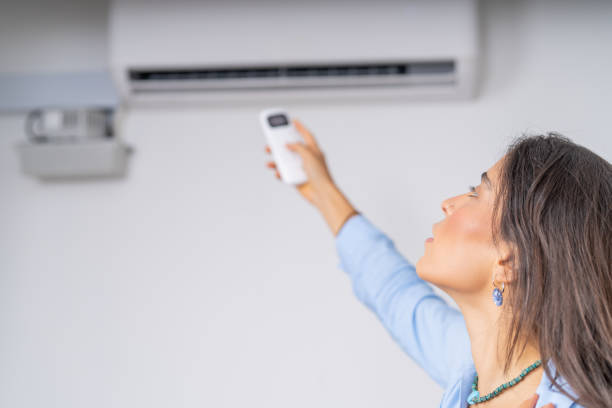
Operating an air conditioner with a faulty capacitor is not recommended. Doing so can strain other components, such as the compressor and fan motors, leading to more extensive damage and costly repairs.
Moreover, a malfunctioning capacitor can cause the system to overheat, posing safety risks. To ensure the longevity and safety of your AC unit, it’s best to address capacitor issues immediately.
How to Confirm It’s a Capacitor Problem?
While the symptoms mentioned can indicate capacitor issues, a definitive diagnosis requires professional assessment. Technicians use specialized tools, like multimeters, to measure the capacitor’s capacitance and determine its functionality.
Attempting to diagnose or replace a capacitor without proper training can be dangerous. For accurate diagnostics and safe air conditioner repairs, consider reaching out to HVAC Service Solutions, serving communities across Canada with expertise and reliability.
Can I Fix an AC Capacitor Problem Myself?
While it’s always recommended to call a professional when dealing with electrical components, there are a few basic steps you can safely take before reaching for the phone. If you’re wondering whether you can fix AC capacitor failure symptoms yourself, here’s what you should know.
Step 1: Turn Off the Power
Safety first. Before checking anything, completely shut off the power to your AC unit at both the thermostat and the main breaker panel. Capacitors store high-voltage electricity, and touching the wrong part could result in serious injury.
Step 2: Look for Visible Signs
Carefully inspect the outdoor condenser unit. Remove the access panel and check for obvious signs of capacitor damage — bulging tops, leaks, corrosion, or burning smells. If the capacitor looks damaged, do not attempt to power the system back on.
Step 3: Listen to the Unit
If your AC is humming but the fan or compressor won’t start, the capacitor may be struggling. You can try gently pushing the fan blade (using a stick or insulated screwdriver — not your hand) to see if it spins. If it starts spinning but doesn’t stay running, your capacitor is likely bad.
Step 4: Know When to Stop
Even if you’re comfortable inspecting the unit, replacing an AC capacitor is not a DIY job unless you’re trained and equipped to handle high-voltage components. Capacitors can hold a dangerous charge even after power is disconnected. Attempting to swap one without properly discharging it is risky.
If you’ve confirmed the signs of AC capacitor failure symptoms but aren’t sure how to proceed safely, it’s time to call in the experts. At HVAC Service Solutions, we can quickly assess your system, replace the faulty part, and get your AC unit running safely again — often on the same day.
How HVAC Service Solutions Can Help
At HVAC Service Solutions, we understand the importance of a fully functional air conditioning system, especially during Canada’s varying weather conditions. Our services include:
- Expert Diagnostics: Utilizing advanced tools to accurately identify capacitor issues.
- Professional Repairs: Ensuring safe and efficient replacement of faulty capacitors.
- Preventative Maintenance: Regular check-ups to prevent future failures and extend the lifespan of your AC unit.
Our team is committed to delivering top-notch HVAC services, ensuring your comfort year-round.
Conclusion
Recognizing and addressing AC capacitor failure symptoms promptly is crucial for maintaining a comfortable and safe indoor environment. Delaying repairs can lead to more significant issues and increased costs.
If you suspect your AC capacitor is failing, don’t hesitate to contact HVAC Service Solutions. Our experienced technicians are ready to provide swift and reliable service, ensuring your air conditioning system operates at its best.
FAQs
1. What are the most common signs of a bad AC capacitor?
Common AC capacitor failure symptoms include:
- The air conditioner not turning on.
- Warm air blowing from vents instead of cool air.
- A humming noise coming from the outdoor unit.
- The system starting and stopping unexpectedly.
- Increased energy bills due to inefficient operation.
- Visible signs of damage on the capacitor, such as bulging or leaking.
These symptoms indicate that the capacitor may not be providing the necessary power to the AC’s motors, leading to reduced performance or system failure.
2. Can a bad capacitor cause my AC to blow warm air?
Yes, a malfunctioning capacitor can prevent the compressor from starting, which is essential for the cooling process. Without the compressor running, the AC cannot circulate refrigerant effectively, resulting in warm air being blown into your home. If you notice this issue, it’s advisable to have the capacitor inspected and replaced if necessary.
3. Why does my AC unit make a humming noise but doesn't start?
A humming noise without the AC starting often points to a faulty capacitor. The capacitor provides the initial jolt of electricity needed to start the compressor and fan motors. If it’s failing, the motors may attempt to start but can’t, resulting in a humming sound. This situation requires prompt attention to prevent further damage to the system.
4. Is it safe to run my AC if the capacitor is failing?
Operating your AC with a failing capacitor is not recommended. A bad capacitor can cause the motors to overheat, leading to potential damage to the compressor and fan motors. This not only reduces the efficiency of your system but can also result in costly repairs. It’s best to address capacitor issues promptly to maintain the health of your AC unit.
5. How can I test if my AC capacitor is bad?
Testing a capacitor involves using a multimeter to measure its capacitance. However, capacitors store electrical energy and can be dangerous if not handled properly. It’s crucial to discharge the capacitor before testing to avoid electric shock. Due to the risks involved, it’s recommended to have a professional HVAC technician perform the test and replace the capacitor if needed.
6. What causes an AC capacitor to fail?
Several factors can lead to capacitor failure:
- Age: Capacitors degrade over time and may fail after several years of use.
- Heat exposure: High temperatures can cause the internal components to break down.
- Power surges: Electrical spikes can damage the capacitor’s internal structure.
- Overuse: Frequent cycling of the AC unit can strain the capacitor.
- Manufacturing defects: Occasionally, capacitors may fail prematurely due to defects.
Regular maintenance and inspections can help identify and mitigate these issues early.
7. How long do AC capacitors typically last?
AC capacitors generally have a lifespan of 5 to 10 years, depending on usage, environmental conditions, and maintenance. Factors such as high ambient temperatures, frequent cycling, and power fluctuations can shorten their lifespan. Regular inspections by HVAC professionals can help monitor capacitor health and ensure timely replacements.
8. Can I replace an AC capacitor myself?
While it’s technically possible for someone with electrical knowledge to replace a capacitor, it’s not recommended for most homeowners. Capacitors can retain a charge even after power is disconnected, posing a risk of electric shock. Additionally, incorrect installation can lead to further damage to the AC system. It’s safer and more efficient to have a licensed HVAC technician handle the replacement.
9. How much does it cost to replace an AC capacitor in Canada?
The cost of replacing an AC capacitor in Canada can vary based on factors such as the type of capacitor, labor rates, and regional pricing. On average, homeowners can expect to pay between CAD $150 to $300 for parts and labor. For an accurate estimate, it’s best to contact local HVAC service providers.
10. How can I prevent future capacitor failures?
To minimize the risk of capacitor failure:
- Schedule regular maintenance: Annual inspections can catch early signs of wear.
- Ensure proper ventilation: Keep the outdoor unit clear of debris to prevent overheating.
- Use surge protectors: Protect your AC system from power surges.
- Avoid overworking the system: Set reasonable temperature settings to reduce strain.
Implementing these practices can extend the lifespan of your AC capacitor and improve overall system performance.
Share

